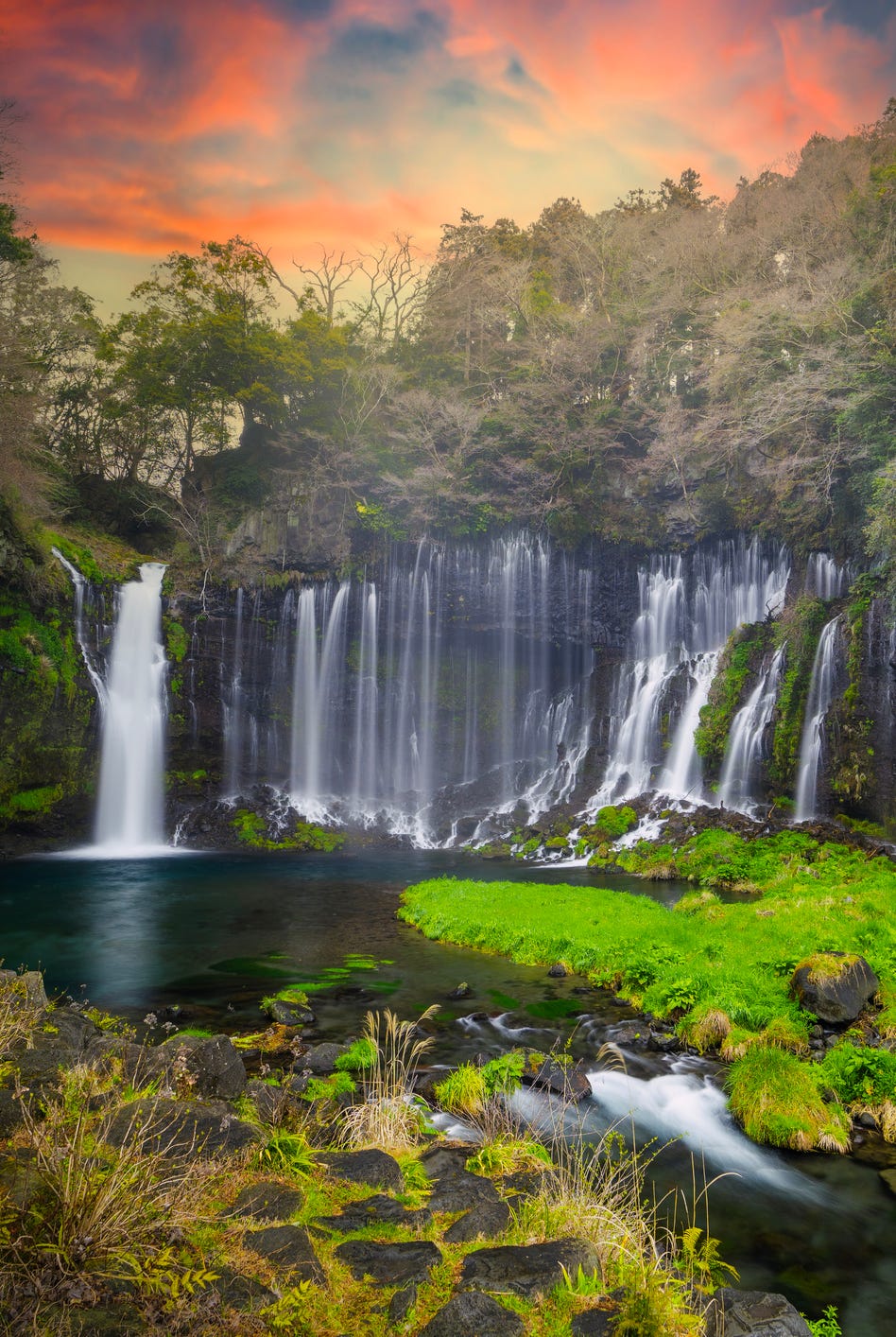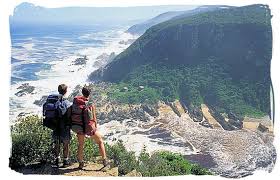society
10 Most Beautiful Places in the World to Add to Your Travel Bucket List

10 Most Beautiful Places in the World to Add to Your Travel Bucket List
Our planet is adorned with so much breathtaking beauty, from ancient forests and historical ruins to stunning lakes, rivers, and seas. These places are so gorgeous that it can be tough to decide which of the most beautiful places in the world you want to visit next. Europe for example, offers the ease of train travel for visiting multiple marvels in one trip, while the deserts and cities of South America may be more challenging to navigate. Regardless of these challenges, certain sites must be at the top of your travel bucket list, and we’ve gathered 10 of the most beautiful places in the world for you.
Whether you’re an adventurer eager to explore the remote Pailón del Diablo in Ecuador or you prefer relaxing amid the serene beauty of Lake Como, Italy, these destinations promise unforgettable experiences. They’ll inspire in ways that nowhere else can. So, renew your passport, invest in some quality luggage, and start planning your fall and winter travels with our curated list of the 10 most beautiful places in the world.
1
Niagara Falls, Canada
It’s almost stereotypical to put Niagara Falls on a list of the most beautiful places in the world, but it is magnificently stunning. This natural wonder is made up of three separate waterfalls with a maximum drop of almost 200 feet. You can visit this site on the United States side too, but everyone knows the Canadian side is prettier.
2
Monte Albán, Oaxaca, Mexico
The Zapotec metropolis of Monte Albán, located in Oaxaca, Mexico, is a fascinating archaeological site that houses the ruins of ancient pyramids. As a designated UNESCO World Heritage Site, Monte Albán served as a ceremonial center around 500 BC. Perched atop a mountaintop, it offers breathtaking views of the Oaxaca Valley.
3
Valley of Flowers National Park, Uttarakhand, India
Experience the breathtaking beauty of the Himalayan mountain at this UNESCO World Heritage Site in the Garhwal region of Uttarakhand, India. As you explore this enchanting valley, you’ll encounter blooming flowers, rare wildlife, cascading waterfalls, and flowing streams. This journey to one of the most beautiful places in the world promises an unforgettable experience for nature lovers.
4
Cocora Valley, Salento, Colombia
Find beautiful examples of the wax palm—Colombia’s national tree—in full glory down in the Cocora Valley, just outside of the city of Salento. These trees are home to the vibrant yellow-eared parrot and grow up to 197 feet tall. As the trees tower over you, traipse through the valley for other scenic nature views, but be aware that this is not a short hike, so bring your walking shoes.
9
Fiordland National Park, New Zealand
Carved by glaciers over 100,000 years ago, Fiordland might look slightly familiar to you if you’re a fan of Peter Jackson’s Lord of the Rings movie trilogy. This park served as the backdrop to a few scenes in the movies, like the real-life Waiau River representing the fictional River Anduin in the first flick. Even if you’re not a LOTR fan, there’s no denying that the natural landscape is breathtaking, from the ancient rainforests to the shimmering lakes and more.
10
Asturias, Spain
This northwestern region of Spain has it all: rugged mountains, historic religious sites, and an unbelievable coastline. Thanks to the amount of rainfall it receives, Asturias is always lush and green, making it an ideal tourist spot for nature lovers. However, any history buffs will fall in love with this fishing region as well, thanks to the many old cultural sites you can visit while there.
news
Ramadan 2026: Let’s Be United, Shina Akanni Urges Muslims.

Ramadan 2026: Let’s Be United, Shina Akanni Urges Muslims.
As Muslims all over the world begins the 30 days compulsory fasting and prayer today,top Fuji Musician Aare Sir Shina Akanni Aroworeyin Scorpido has congratulates them for witnessing another month of Ramadan.
Akanni advised them to follow the teachings of the the Holy Prophet Muhammad (SAW) which is peaceful co existence among themselves and their neighbor ‘because Islam is Religion of peace”.
He said the month of Ramadan is an holy month therefore Muslims should try as much as they can to maintain peaceful coexistence among themselves and others and that they should see themselves as ambassador of peace.
While praying for Nigeria,Aare Sir Shina Akanni Aroworeyin Scorpido said he believes that there will be an economic turnaround soon because what’s is happening now are signs of thought times that never last “if we can pecevere things will get better”.
The Scorpido crooner who recently released a hip hop single titled “Magbelo” said he is currently working on a complete album which will be released before the end of the year.
Aare Sir Shina Akanni Aroworeyin Scorpido whose last album ‘ABCD” is still in hot demand said that his next album will be a pot pouri of all kinds of music because his brand of Fuji music is a blend Fuji , Hip-hop,Apala ,Highlife and others.
society
Ajiran Youth Protest Over Deaths of Two Residents, Demand Justice

Ajiran Youth Protest Over Deaths of Two Residents, Demand Justice
The Ajiran community of Lagos State erupted in a powerful protest on Tuesday as local youths took to the streets to express their grief and anger over the tragic murders of Prince Ademola Akintoye and Sherrif Agboworin. The demonstration follows the recent decision to reopen the murder case, an investigation that has already led to the arrest of over nine suspects in connection with the heinous crimes committed more than a year ago.
Carrying vibrant banners and poignant posters featuring the faces of the deceased, the protesters marched through the heart of their community while singing somber dirges to honor their memory. With chants of unity and justice ringing in the air, they called on both the Lagos State Government and the Lagos State Police Command to ensure that those responsible are swiftly and decisively brought to justice.
The youth leaders emphasized that peace and normalcy will remain elusive in Ajiran until all those complicit in the killings are held accountable. They articulated that true justice is the only way to restore tranquility and honor the lives of Akintoye and Agboworin, whom they described as innocent victims of a grave injustice.
Speaking on behalf of the demonstrators, youth leader Mr. Kehinde Oladele urged law enforcement to conduct a thorough and fair investigation. He asserted that every individual involved including the nine arrested suspects must face the full extent of the law. Especially Hammed Tajudeen, the principal suspect mentioned by others in custody, whom they believe should not escape scrutiny.
“The reopening of this case after more than a year is a critical first step towards achieving justice and fairness for our brothers,” Oladele said. “We urge the police to get to the root of the matter. Those mentioned during the investigation, especially Hammed Tajudeen, should not be spared.”
The atmosphere in the community grew increasingly tense last week following speculation that prominent businessman Aare Bashir Olawale Fakorede was implicated in the unrest. The speculation appeared to stem from his alleged influence on the reopening of the murder investigation. This misunderstanding escalated when a group of protesters targeted his filling station in Ikate, vandalizing his properties and disrupting business operations in the gas station based on the false assumption that Fakorede was behind the police’s renewed inquiries.
In response to the rising tensions and misinformation, Fakorede’s spokesperson, Ola Muhammed, issued a comprehensive statement denying any connection between Fakorede and the unrest. The spokesperson emphasized that rumors suggesting the businessman orchestrated the revival of the murder case were completely unfounded.
“I feel it is crucial to clarify, for the sake of transparency and historical accuracy, that this entire ordeal is in no way related to me,” Fakorede stated. “I am also very interested to see that the culprits are brought to book. I categorically affirm that I have never been involved in any business dealings with Mr. Hammed Tajudeen.”
Fakorede further elaborated that the recent protests which led to the destruction of his property were reportedly instigated by Tajudeen and others who seem determined to manipulate the narrative and cast suspicion upon him. Fakorede expressed his own strong commitment to uncovering the truth surrounding the deaths.
As the police investigation progresses, it has become increasingly apparent that all accusing fingers are pointing to Hammed Tajudeen who is currently evading capture, adding another layer of complexity and urgency to the ongoing situation. Community members have questioned why he remains at large instead of submitting himself to the police for questioning if he is truly innocent of the allegations against him.
Community leaders are now emphasizing the need for dialogue to address the root causes of the unrest and work toward restoring harmony within Ajiran, even as the demand for justice remains at the forefront of public consciousness.
society
Ramadan: Al-Yusuff International Travels and Tours Boss Greets Muslims

Ramadan: Al-Yusuff International Travels and Tours Boss Greets Muslims
As the holy month of Ramadan begins across the globe, the Chief Executive Officer of Al-Yusuff International Travels and Tours Limited, Dr. Abdulmajeed Oladele, has extended his heartfelt greetings to Muslims worldwide.
In his message, the respected business mogul expressed gratitude to Almighty Allah for the privilege of witnessing this year’s sacred month.
“We glorify Allah for granting us the grace and opportunity to witness this year’s month of blessings. Ramadan is a sacred and special month for all Muslims, a month greater than many others, filled with piety, mercy, and abundant blessings.
I congratulate all Muslims across the world. Let us faithfully observe the requirements of Ramadan. May Allah (SWT) grant our heart’s desires and make this period easy and rewarding for us all.”
Dr. Oladele urged Muslims to embrace the spiritual significance of Ramadan through devotion, charity, self-discipline, and prayers for peace and prosperity.
-

 celebrity radar - gossips6 months ago
celebrity radar - gossips6 months agoWhy Babangida’s Hilltop Home Became Nigeria’s Political “Mecca”
-

 society6 months ago
society6 months agoPower is a Loan, Not a Possession: The Sacred Duty of Planting People
-

 news6 months ago
news6 months agoTHE APPOINTMENT OF WASIU AYINDE BY THE FEDERAL GOVERNMENT AS AN AMBASSADOR SOUNDS EMBARRASSING
-

 society5 months ago
society5 months agoReligion: Africa’s Oldest Weapon of Enslavement and the Forgotten Truth









